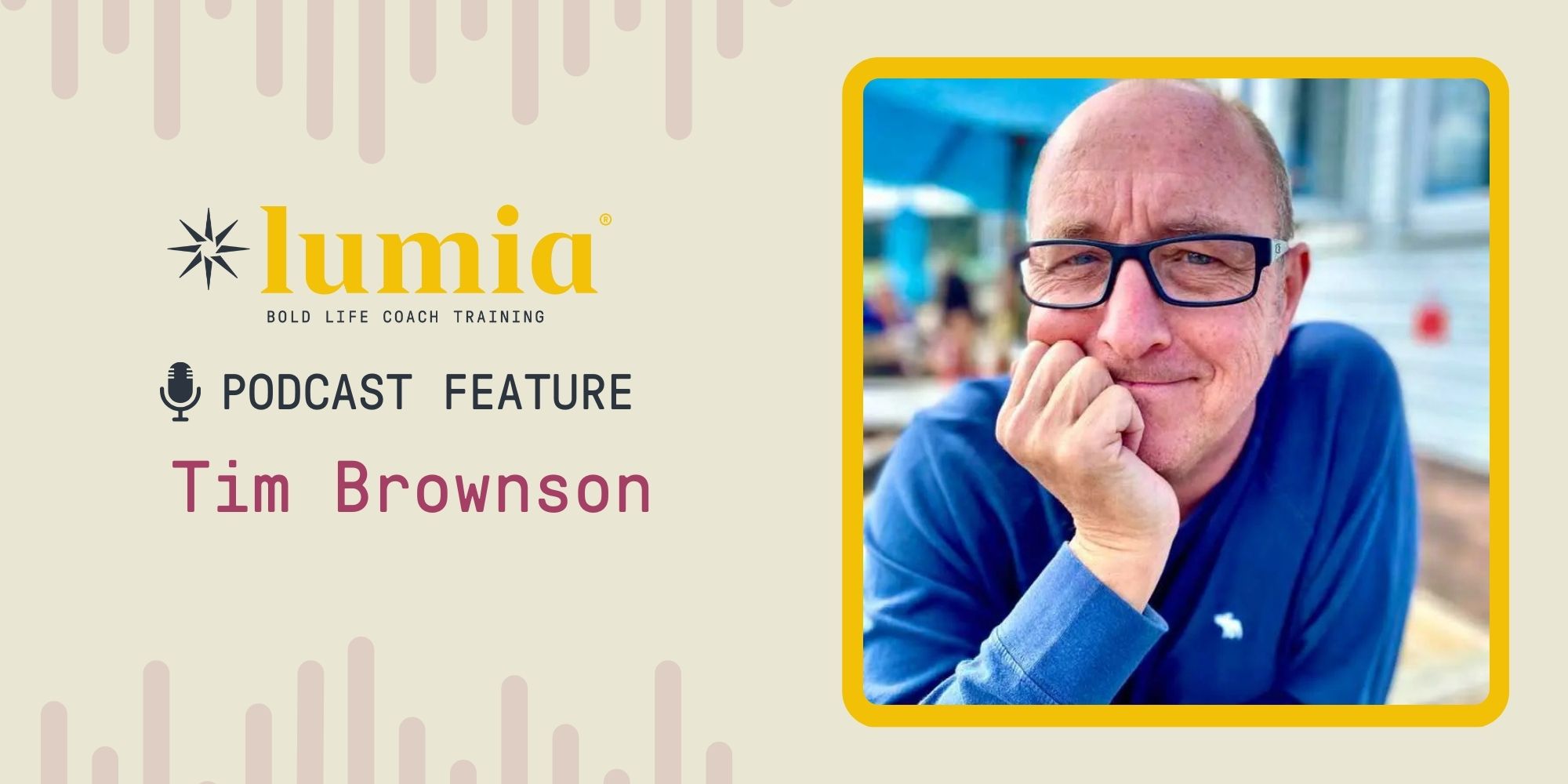Anti-Bias Work: What’s At Stake
Part 2 of our conversation with Lumia Coaching instructor Khary Hornsby, where we discuss what anti-bias work is, and why it's important for us as coaches.
The Everything Life Coaching Podcast, featuring Lumia Coaching founders John Kim and Noelle Cordeaux, is a deep dive into the experience and business of being a life coach. Subscribe to get new episodes weekly!
Anti-Bias Work: What’s at Stake
Part 2 of our conversation with Lumia Coaching instructor, Khary Hornsby. For Part 1, check out Unconscious Bias: What Coaches Need to Know.

Khary has a passion for empowering people to skillfully connect across real and perceived cultural differences through cultivating cultural intelligence, emotional intelligence and mindfulness skill-sets. He has over 14 years of experience in international relations leadership positions, and has conducted workshops and presentations in over 40 countries.
In addition to serving on Lumia’s faculty, Khary is Assistant Dean, Chief Global and Executive Programs Officer at the University of California, Irvine. He is a certified trainer in: EQ-i 2.0 (Emotional Intelligence); EQ 360; Intercultural Development Inventory (IDI); and CQ Level 2 (Cultural Intelligence). Khary is a certified Budokon yoga instructor and is an avid social dancer. He earned a bachelor of science degree in cellular and molecular biology from the University of Michigan - Ann Arbor, and is a graduate of the University of Minnesota Law School.
Khary, how did you first become interested in anti-bias work?
On a very personal level, I remember the first time that I was called “American.” I was living in France in my early twenties, and someone said, “Well, you’re American so of course you would think that…”
I was initially taken aback, but after I had a moment to unpack it I realized that this was the first time in my life that I’d been called an American, unqualified by identifiers like “African-American.”
This experience raised a lot of questions in my mind, and invited me to reevaluate my ideas about my own culture and my relationship to it.
For someone who wants to begin exploring anti-bias for themselves, what’s a good starting point?
In order to go deep, we may need to experience a certain amount of friction first - like Khary did in the story above. It’s only when we’re jostled into examining the ideas we hold about our identity that we’re able to achieve new awareness and insight.
It’s useful to think of this work as moving from the inside-out. If we haven’t done some exploration into our own internal landscape, we can’t hope to effect real and lasting change for the better in our relationships and communities.
The real anti-bias work begins not at the institutional level, but by looking in our own backyard.
As coaches, one of the standards of the ICF is that we get a handle on the ways our own biases may be preventing us from seeing others clearly. It’s imperative that we know how unconscious bias functions so that we can hold space for others in an ethical and unbiased way. Our job is to be open and inquisitive about the world around us, and to ask questions of our clients that are in solidarity with them, and their life experience.
It can feel intimidating and uncomfortable to talk about this topic. In our culture, the inability to meanigfully speak to one other about difficult topics feels like it's become contagious. There’s such a debate going on over “cancellation” in particular, and what that means.
What's become clear is that shutting one another down in the name of systemic change cannot be our end-goal.
“Hate the system, not the humans.” - Noelle Cordeaux
As we consider how we’re interacting with other people, it can be useful to ask:
- Have I engaged?
- Have I given the other party an opportunity to learn and evolve?
- Am I advancing the very causes that I stand for, or am I creating new divisions?
Yes, we absolutely have to honor who we are: speak our truth, recognize our history, and represent the voices of our ancestors. And we also are called to remember the ultimate objective of this work: to create solidarity.
Centering in humanism is vital to the process. Building bridges to understanding is what will help us find the common ground we need in order to figure this all out as a society.
The most important quality we can bring to this work is curiosity.
To approach new information and different perspectives with curiosity creates an openness that people can feel. When we are unguarded and genuinely curious, it becomes easier for others to engage in meaningful conversations, even the difficult ones like this.
Curiosity helps foster sincere connection - one heart, one mind, one conversation at a time.
Want to Become a Coach?
One of our values at Lumia is that we dare to be different. Our coaches ignore the expectations society tries to impose on them, and seek to live from their own truth instead. If you are ready to step into your power as a coach, come check out Lumia Life Coach Training. Grounded in science, our ICF accredited program features authentic instructors, a robust curriculum, and business instruction to prepare you for liftoff.
Lumia Coaching: Vibrant community. Evidence-based life coach training. Lifetime support.





.png)